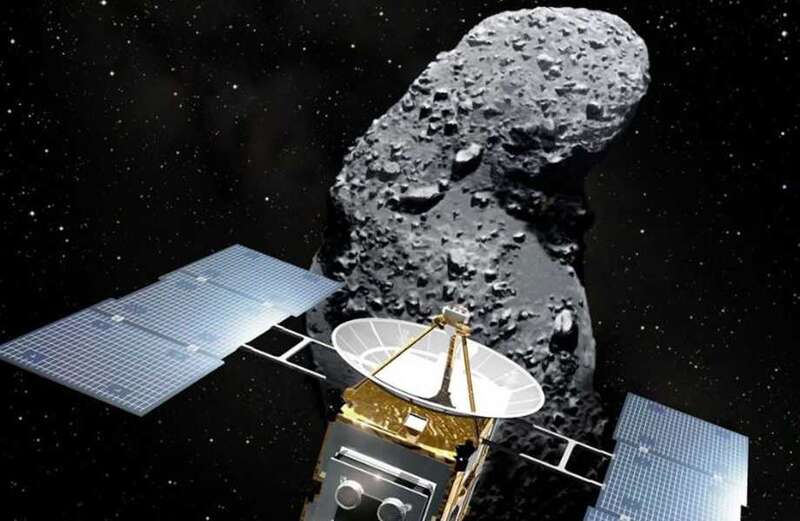EXPERTS have warned over a massive asteroid which could evade Earth's defences if it came too close.
The asteroid, known as Itokawa, is more than 1700ft tall, the equivalent of 535metres.

The giant space rock is as big as it is old.
Experts estimate that the impact that created Itokawa to have happened more than 4.2billion years ago - which is almost as old as our Solar System.
According to experts at Curtin University is Western Australia, professor Fred Jourdan and associate professor Nick Timms, this asteroid is particularly hard to destroy in comparison to its cosmic siblings.
 Charming UK village is 'UFO hotspot' with 'NASA scientists showing interest'
Charming UK village is 'UFO hotspot' with 'NASA scientists showing interest'
Asteroids are chunks of rocky debris in space, "remnants of a more violent past in our Solar System," the pair explained.
There are two types of asteroids.
Monolithic-type asteroids, which are about a kilometre in diameter and have a predicted lifespan of only a few hundred million years.
And then there's rubble pile asteroids like Itokawa, which are made up of fragmented rock which compress and only get stronger with each impact.
"Constant collisions will simply crush the gaps between the rocks, instead of breaking apart the rocks themselves," Jourdan and Timms wrote in a report published by The Conversation.
"Once they form, they appear to be very hard to destroy."
The experts described asteroids like Itokawa as "giant space cushions that last forever," which doesn't exactly spell good news for planet Earth.
Luckily, it is still around 42million kilometres away from our home planet, according to the European Space Agency.
Though the onlookers remain concerned that Earth's defences against asteroid may be no match.
Nasa's DART mission last year sought to check how prepared Earth would be in the scenario of an asteroid hurtling towards the planet.
 Astronomer leads hunt for Northern Lights 'sound' rarely heard in the aurora
Astronomer leads hunt for Northern Lights 'sound' rarely heard in the aurora
"While the DART mission was successful in nudging the orbit of the asteroid it targeted, the transfer of kinetic energy between a small spacecraft and a rubble pile asteroid is very small," both professors warned.
"If there was an imminent and unforeseen threat to Earth in the shape of an incoming asteroid, we’d want a more aggressive approach."
The pair suggested that Earth dwellers may need to use the power of a nuclear blast in space to build enough kinetic energy to destroy "a naturally cushioned" rubble pile asteroid.
"Should we actually test a nuclear shock wave approach, then?," they asked.
"That is an entirely different question."
We pay for your stories! Do you have a story for The Sun Online Tech & Science team? Email us at tech@the-sun.co.uk

































